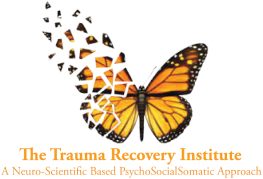13 Aug Post Traumatic Stress Disorder
Posttraumatic Stress Disorder (PTSD) has been described as a disorder of memory. It has become quite apparent that there are two types of memory in PTSD: the first being the involuntary intrusions of the trauma, and the second being the voluntarily recalled memories that constitute the trauma story, also known as the trauma narrative. Both are fundamentally different in their quality and form.
The involuntary intrusions are vivid, highly emotional, and involve a sense of reliving the original trauma. In contrast, the voluntarily recalled trauma narratives do not share this same intensity, but their content is notable for being significantly disorganized. Such disorganization can be found very soon after the traumatic event and hence is not attributable to poor recall, but to the very nature of these traumatic memories themselves. In essence, there is an inability to put into words the most emotional part of a traumatic event, a period of time which could have lasted anywhere from several seconds to several hours. Traumatic memories are also unstable, so what is under voluntary and involuntary control varies over time. For this reason, the recall of trauma over different points in time creates different trauma accounts, with such discrepancies being more noticeable as the symptoms of PTSD become more severe.
For such disorders of memory, a natural follow up question is what are the molecules and chemical building blocks that our memories are made from? Unlike taking a blood sample, a saliva swab or a sample of bone marrow, there is no simple way to sample brain tissue from a live human. For this reason, neuroscientists have relied on animal models to discover what goes on in the brain when memories are made. The work of Eric R. Kandel forms the basis for much of what we understand about how memories are formed. Dr. Kandel was awarded the 2000 Nobel Prize in Physiology or Medicine for his extensive body of pioneering work investigating the synaptic connections between nerve cells in sea slugs. His work has illuminated some of the basic molecular mechanisms underlying learning and memory in animals and is central to understanding not only normal memory, but also disorders that affect memory, such as PTSD. More recently, Dr. Kandel and his colleagues identified a molecule, a prion protein called CPEB, (cytoplasmic polyadenylation element-binding protein 3) that plays a key role in the maintenance of long-term memories in the sea slug Aplysia and in mice. In a 2015 study, Kandel and his colleagues trained mice to memorize a way to navigate through a maze, then the researchers knocked out the mouse homolog of the CPEB gene called CPEB3 and this knocked out the maintenance of long-term memories and caused the mice to forget how to navigate the maze.
Dr. Kandel is a Professor at Columbia University, the Kavli Professor and Director of the Kavli Institute for Brain Science, Co-Director of the Mortimer B. Zuckerman Mind Brain Behavior Institute and a Senior Investigator at the Howard Hughes Medical Institute. I spoke with him about this recent publication and the relevance of such findings to disorders of memory, such as PTSD.
Working with PTSD at Trauma Recovery Institute
Trauma Recovery Institute offers unparalleled services and treatment approach through unique individual and group psychotherapy. We specialise in long-term relational trauma recovery, sexual trauma recovery and early childhood trauma recovery. We also offer specialized group psychotherapy for psychotherapists and psychotherapy students, People struggling with addictions and substance abuse, sexual abuse survivors and people looking to function in life at a higher level. Trauma recovery Institute offers a very safe supportive space for deep relational work with highly skilled and experienced psychotherapists accredited with Irish Group Psychotherapy Society (IGPS), which holds the highest accreditation standard in Europe. Trauma Recovery Institute uses a highly structured psychotherapeutic approach called Dynamic Psychosocialsomatic Psychotherapy (DPP).

Dynamic Psychosocialsomatic Psychotherapy (DPP) at Trauma Recovery Institute Dublin
Dynamic Psychosocialsomatic Psychotherapy (DPP) is a highly structured, once to twice weekly-modified psychodynamic treatment based on the psychoanalytic model of object relations. This approach is also informed by the latest in neuroscience, interpersonal neurobiology and attachment theory. As with traditional psychodynamic psychotherapy relationship takes a central role within the treatment and the exploration of internal relational dyads. Our approach differs in that also central to the treatment is the focus on the transference and countertransference, an awareness of shifting bodily states in the present moment and a focus on the client’s external relationships, emotional life and lifestyle.
Dynamic Psychosocialsomatic Psychotherapy (DPP) is an integrative treatment approach for working with complex trauma, borderline personality organization and dissociation. This treatment approach attempts to address the root causes of trauma-based presentations and fragmentation, seeking to help the client heal early experiences of abandonment, neglect, trauma, and attachment loss, that otherwise tend to play out repetitively and cyclically throughout the lifespan in relationship struggles, illness and addictions. Clients enter a highly structured treatment plan, which is created by client and therapist in the contract setting stage. The Treatment plan is contracted for a fixed period of time and at least one individual or group session weekly.

“Talk therapy alone is not enough to address deep rooted trauma that may be stuck in the body, we need also to engage the body in the therapeutic process and engage ourselves as clients and therapists to a complex interrelational therapeutic dyad, right brain to right brain, limbic system to limbic system in order to address and explore trauma that persists in our bodies as adults and influences our adult relationships, thinking and behaviour.”


Sorry, the comment form is closed at this time.